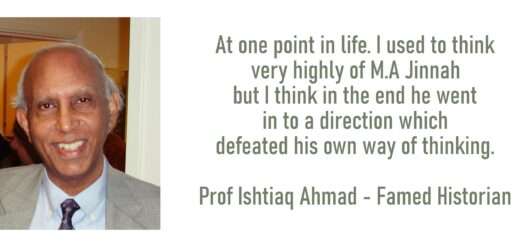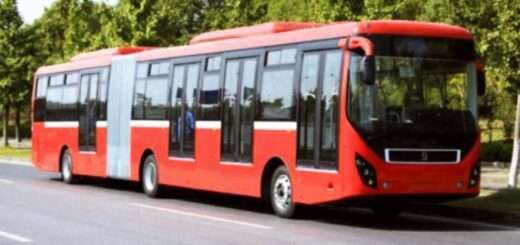Education 4.0: Research Article on Education: By Kanwal Gul
Education 4.0: Research Article on Education: By Kanwal Gul
Are our children ready for future jobs/businesses that do not exist yet, or are we teaching them a traditional skillset that would be obsolete in the future? Civic space and the nature of the workforce are transforming around the globe due to globalization and technological transformation. However, our educational system seems polarized and detached from the realities of the global citizenry and global economies. The world is developing education 4.0 models for schools; our country, in contrast, is putting teeth into a regressive model of a religion-focused Single National Curriculum (SNC).
A well-designed primary education system is the foundation of any creative and progressive society in the world. Unfortunately, Pakistan ignores utilizing its young minds and the extraordinary potential of this age group. Standardized learning models belonging to the first and the second industrial revolution – confined to operational knowledge and process-oriented activities – are still part of our educational system. Similarly, when the third industrial revolution introduced the concepts of value creation and automation, we only chose to adopt the latter.
In 2009, when more devices were connected to the Internet than humans, the fourth-industrial revolution sprung from digital transformation and artificial intelligence. Today, we are breathing in the era of the fourth industrial revolution; it raises the question of validity, relevancy, adequacy, and the use of the current educational system in our personal and professional lives. The world is girding up its loins for catalyzing quality learning: transitioning the traditional education system to inculcate 21st-century skills, ensuring social cohesion, and resuscitating the paths of social mobility.
Education 4.0 is a contemporary pedagogy of shifting learning content according to future needs. The framework incorporates the content on skillset – global citizenship, innovation, interpersonal, and technological skills – and innovative experiential learning pedagogies that are self-paced, self-driven, problem-based, inclusive, and accessible.
Globalization, the concentration of markets, sustainable development goals, and digital transformation have raised the need to prepare our children to become cosmopolitans and agents of peace and promote sustainability. Virtual classrooms are an example of global citizenship skills, which can be taught through a mechanism by incorporating them into science, civics, and technological projects. For instance, in 2020, an education minister of Italy moved legislation – later accepted – to include climate change and sustainability subjects in the national curriculum.
Innovative skills can be enabled through playful learning. Early childhood education in Finland, Estonia, and Norway engage students in structured and unstructured playful activities to sow seeds of ideation and imagination. Playing creative games and using constructive methods with your children will allow them to understand, think, create, and enjoy learning at home or school.
According to the World Economic Forum (WEF), an adequate supply of technological skills (not learning new devices and applications but programming, coding, and designing technology) is necessary to realize the power of the fourth industrial revolution. The United Arab Emirates (UAE) has launched Artificial Intelligence and Robotic competitions encouraging children to learn hard skills. Policymakers must legislate policies on digital responsibility instead of only teaching hard skills – technology design and application. Given that digital skills come with the issues of responsible usage, management of risk and security, and consumer awareness, school curricula should include digital literacy.
Human-centric skills are highly demanded since technology and automation have overwhelmed humans. Artificial intelligence cannot replicate emotional intelligence and empathy; hence teaching children interpersonal skills are pertinent/to the need of the time/hour. For example, if a child acknowledges the ideas of a non-binary person or a person from a different race, ethnicity, or faith, it would likely innovate inclusive products, technology, and services. Social media is a useful tool to teach –( provided it is supervised )- children to be more human-centric by engaging them in healthy and constructive discussions with people of different demographical characteristics.
To teach the above skills, we must design experiential learning pedagogies to transform learning experiences. Learning should be self-paced so that a child does not feel the burden of winning the race. Early childhood education should use a personalized approach instead of an instructive approach to encourage young minds to inquire and break norms. Education has become accessible, as 258 million children are part of primary and secondary schools around the globe. However, access does not necessarily translate into better results. Infrastructure, lack of teachers, and the countries’ social, political, and economic plight hinder a meaningful and valuable learning experience.
Where problem-based learning, such as capstone projects, enhances children’s problem-solving and collaborative skills, student-driven approaches will develop a love for lifelong learning. A study suggests that by 2022, children would need 101 extra days for self-learning, while our traditional system keeps students engaged with passive learning, decreasing their lifelong learning capacity. Self-learning will allow them to acquire skills based on their individual needs, translating knowledge into a passion. The youth employment industry grew 67 percent from 2015 to 2016. Non-profit organizations are working with school children, giving them vocational training to get themselves fit into the job markets.
Recent studies suggest that global GDP would increase by 11.5 Trillion dollars by 2028 if the countries would incorporate the Education 4.0 models in their respective economies. The Platform for Shaping the Future of the New Economy and Society is a vision to improve jobs and educational opportunities by 2030. Education 40 models have the potential to create future global economies, global societies, and global citizens, which will impact billions of people around the world.
Photo by Brooke Cagle on Unsplash














